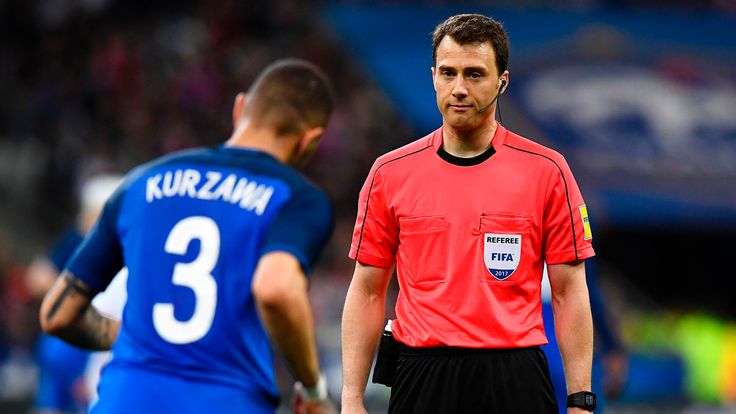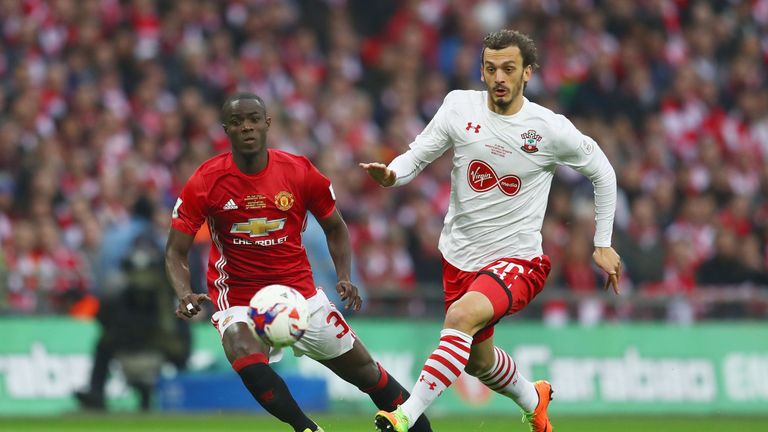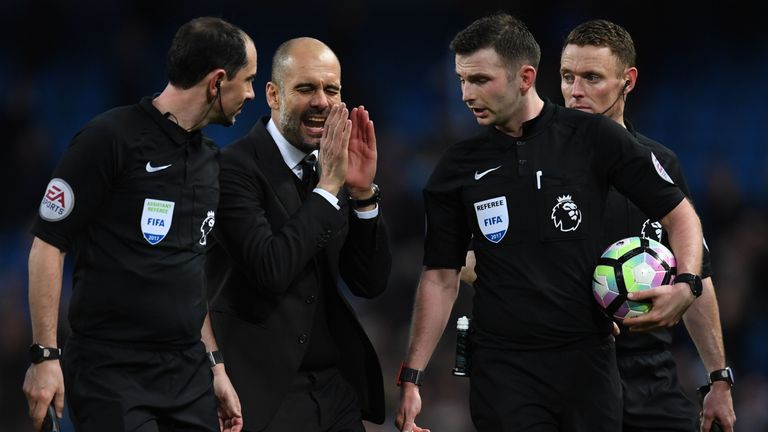The video replay debate: Are you for or against using the technology in football?

Wednesday 29 March 2017 13:50, UK
Spain's 2-0 win over France on Tuesday night reignited the debate surrounding video technology in football.
The friendly clash in Paris featured two interventions by the Video Assistant Referee - a system being trialled by FIFA which could eventually be rolled out in the Premier League and beyond.
The technology was used to chalk off a headed goal from France's Antoine Griezmann after Layvin Kurzawa was ruled offside, and there was another intervention when Gerard Deulofeu's goal for Spain was disallowed for offside before the decision was overturned.
The incidents split opinion on social media. Sky Sports pundit Jamie Carragher praised the speed with which the decisions were taken, but others remain unconvinced that video technology belongs in football.
Which side are you on? We look at the arguments for and against.
FOR VIDEO TECHNOLOGY
Incorrect decisions change games
For any football fan, player or manager, there are few things more frustrating than an incorrect decision which denies your team a goal or gifts your opponent an advantage.
It happens all the time, and for a high-profile example you only have to look back to Manolo Gabbiadini's disallowed goal in the EFL Cup final.
The Italian was flagged for offside despite being comfortably onside when he converted Cedric Soares' cross. Southampton should have been 1-0 up, but Zlatan Ibrahimovic put Manchester United in front shortly afterwards and Southampton went on to lose the game 3-2.
As in so many other cases, a video replay would have corrected the mistake and eliminated the injustice.
Referees need help
Referees come in for heavy criticism after costly errors, but it's a difficult job and it is only human to make split-second mistakes. Video technology would ease the pressure on officials and reduce the amount of abuse they receive for incorrect calls.
"I think it will help referees and I think they need help," said Tony Gale on Premier League Daily. "There have been many decisions I've seen from the commentary box this season that I could have made myself."
It works in other sports
While football is yet to embrace video technology, it has already become a valuable asset in plenty of other sports.
In rugby, tennis and cricket, for example, replays have been introduced without negatively impacting the sport. The technology is readily available, so why shouldn't football be next?
AGAINST VIDEO TECHNOLOGY
Will it really solve the issue?
Introducing video technology will not stop bad decisions with many calls so contentious that they just cannot be resolved in this way. It is obvious that disagreements remain even after multiple replays. Video technology might lead to different decisions but not definitive ones.
It's a slippery slope for football
When goal-line technology was introduced it was sold on the basis that such incidents were rare and clear-cut. But penalty calls are neither so where does this all end? Even a poor throw-in decision can impact a game but that surely does not justify stopping for a review.
"It seems to have worked well last night but where's the line drawn?" asked Leon Osman, also a guest on Premier League Daily. "Say there was an offside or a free kick a minute before a goal - how far back do you go before a goal is disallowed? I think there are a lot of questions that need to be answered before it can be taken on further."
It ruins the flow of the game
Some sports have a stop-start rhythm and so lend themselves to off-field interjections. In cricket, each individual delivery is an event separate from the last. But football's flow has been a factor in it becoming the world's most popular sport. Tampering with that is a risk.
Decisions add to the theatre of football
Football's narrative has become as powerful as the simple joy of the game itself. It's the stories that resonate every bit as much as the skills. Removing this rich seam of discussion for supporters will not add to the game's peculiar attraction but detract from it.







